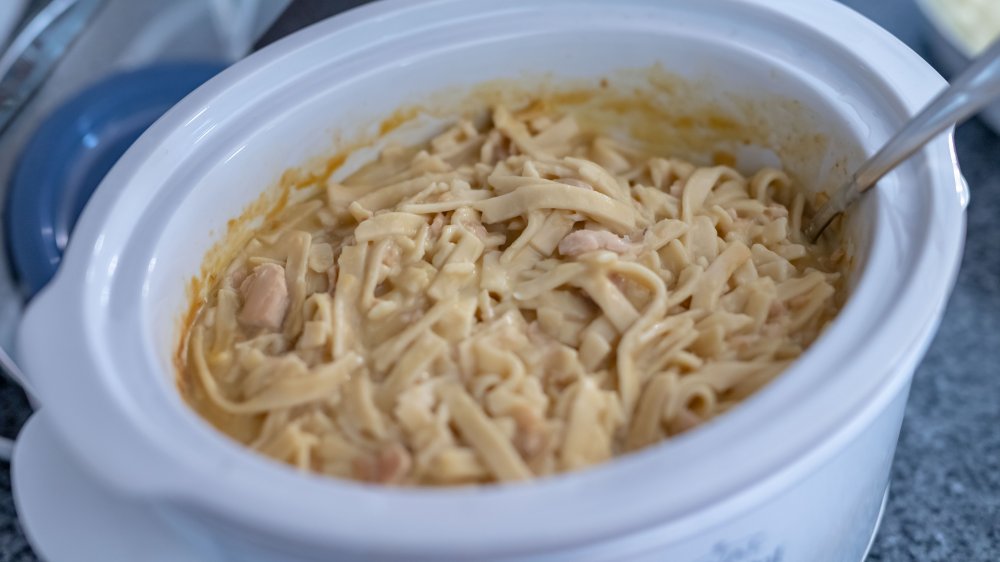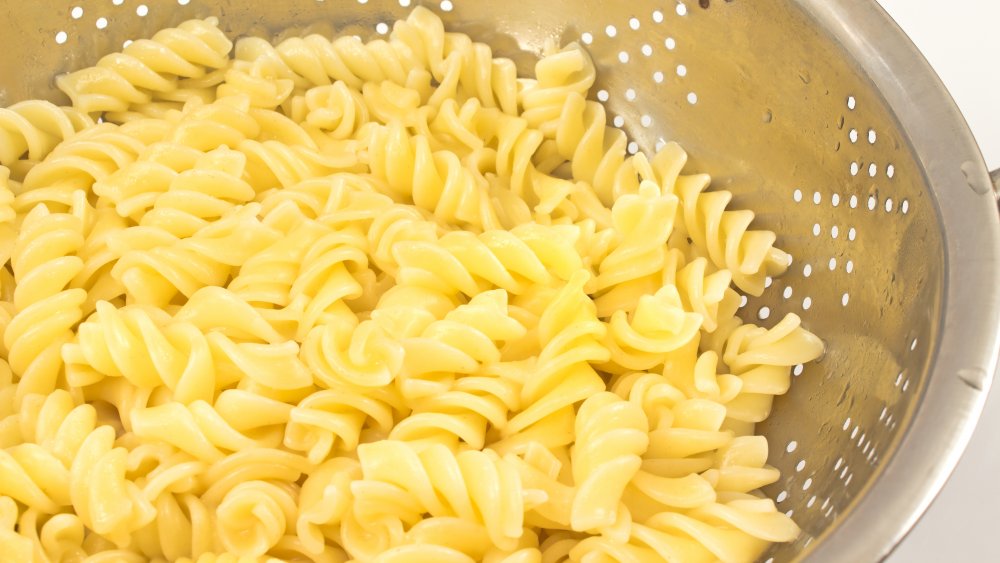Here's Why You Shouldn't Cook Pasta In A Slow Cooker
A slow cooker or crock pot can be a lifesaver and best friend during those hectic work weeks when you have a to-do-list a mile long, your family is juggling nightly activities, and there are an array of responsibilities that need your attention. This small kitchen appliance can fill your house with an incredible aroma, and an incredible one pot meal saves the time it takes to slave over a hot stove.
While slow cookers are great for making a vast number of meals, they are not good for everything, and some ingredients require a little more TLC than what a slow cooker is really meant to provide (via Today). One ingredient that is greatly debated for slow cooker use is pasta. Pasta is made to absorb moisture at any temperature. To cook dried pasta perfectly, it requires boiling, salted water; and unless you like limp pasta, it also requires you to really monitor your pasta's cooking time in order to get the firm, al dente texture that most people prefer (via the Kitchn). Why can't you achieve this in a slow cooker?
The problem with pasta and the slow cooker
Pasta needs attention which is really the complete opposite of a slow cooker's purpose. Slow cookers were created for convenience so you can go to work, and still have dinner on the table when you got home. The slow cooker uses low heat, reaching a temperature between 170 and 280 degrees Fahrenheit, trapping steam to cook your food over a prolonged period of time, usually several hours (via USDA). Pasta cooked in a slow cooker runs a real risk of becoming a squishy, gelatinous, and starchy mess in a cooking environment of this nature.
Ingredients like pasta and rice do better on the stove top where the heat is direct — you can always add the pasta into the slow cooker toward the end (via Eat This Not That). If you do cook your pasta in the slow cooker, Dinner at the Zoo suggests adding it in for the last 15 to 20 minutes of your recipe's cook time. This will protect your pasta from absorbing too much liquid and becoming sticky, clumpy, and pretty much inedible.

